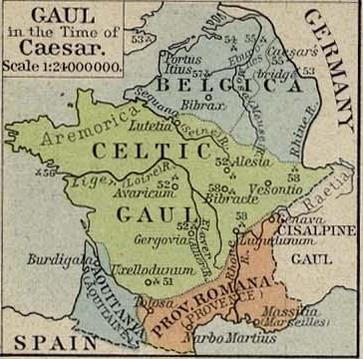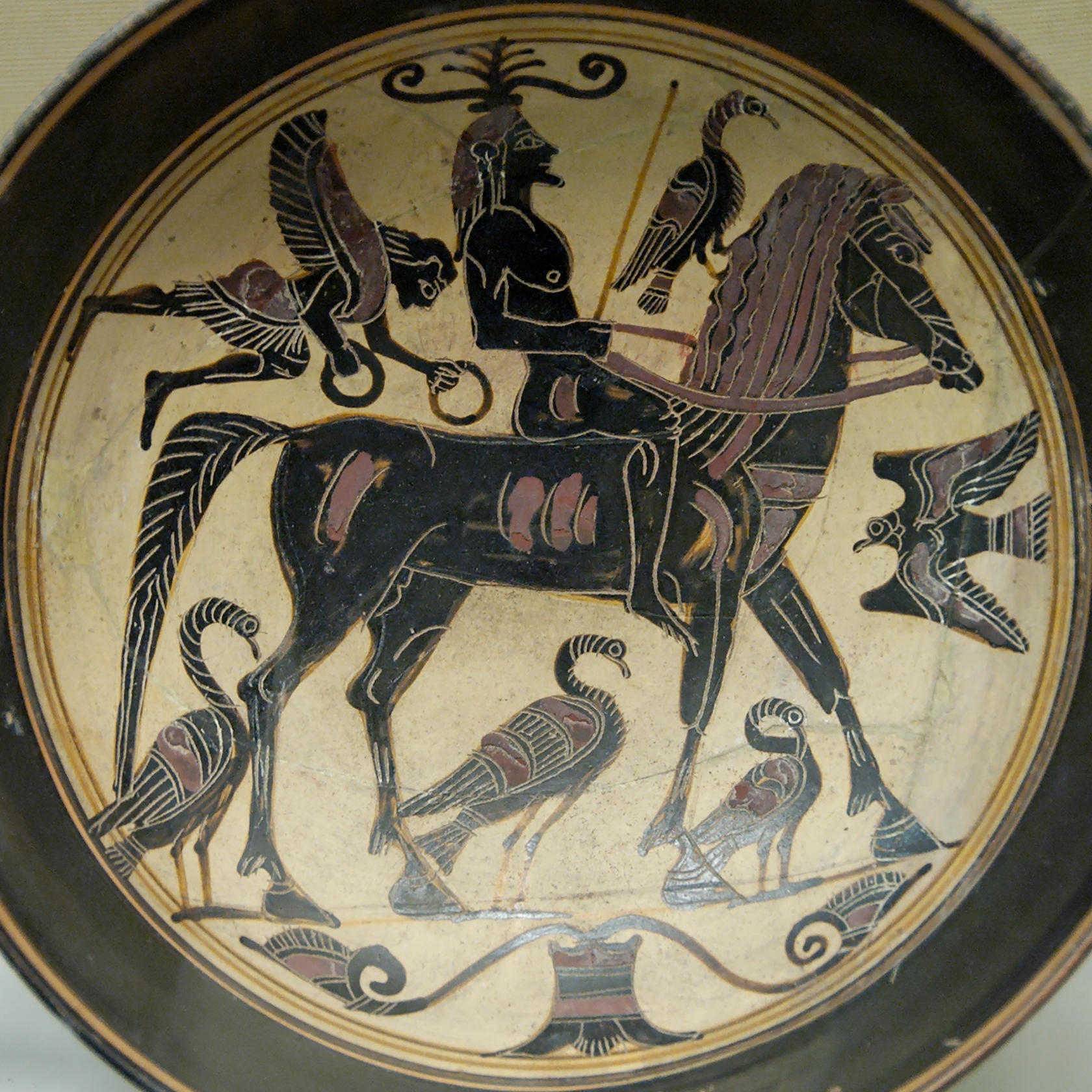|
Apollo Atepomarus
Atepomarus in Celtic Gaul was a healing god. Mauvières (Indre), Apollo was associated with this god in the form Apollo Atepomarus. At some of Apollo's healing sanctuaries (as at Sainte-Sabine, Burgundy) small figurines of horses were associated with him. Names and etymology The title also appears as ''Atepomerus''. Scholarship suggests the name is a compound of ''at-'' (intensifier), ''-epo-'' (the Celtic word for "horse") and ''-marus'' ("large, great"). Thus, the epithet is sometimes translated as "Great Horseman" or "possessing a great horse". Pierre-Yves Lambert rejects his connection with horses and suggests an etymology based on ''*ad-tepo'', related to 'protection, refuge'. Role As founder A character named Atepomarus appears with a Momoros ( fr) as a pair of Celtic kings and founders of Lugdunum. They escape from Sereroneus and arrive at a hill. Momorus, who had skills in augury, sees a murder of crows and names the hill ''Lougodunum'', after the crows. This myth is re ... [...More Info...] [...Related Items...] OR: [Wikipedia] [Google] [Baidu] |
Celtic Gaul
Gallia Celtica, meaning "Celtic Gaul" in Latin, was a cultural region of Gaul inhabited by Celts, located in what is now France, Switzerland, Luxembourg and the west bank of the Rhine in Germany. According to the Roman ethnography and Julius Caesar in his narrative Commentaries on the Gallic War, Gaul was divided into three main regions: Belgica, Aquitania and Celtica. The inhabitants of Belgica were called Belgae, those of Aquitania were called Aquitani. The inhabitants of the Celtica region called themselves Celts in their own language, and were later called Galli by Julius Caesar: A similar definition is given by Pliny the Elder Gaius Plinius Secundus (AD 23/2479), called Pliny the Elder (), was a Roman author, naturalist and natural philosopher, and naval and army commander of the early Roman Empire, and a friend of the emperor Vespasian. He wrote the encyclopedic ' ...: Notes {{Authority control Cultural regions Pre-Roman Gaul Ancient history of Franc ... [...More Info...] [...Related Items...] OR: [Wikipedia] [Google] [Baidu] |
Mauvières
Mauvières () is a commune in the Indre department in central France. Geography The commune is located in the parc naturel régional de la Brenne. The river Anglin forms most of the commune's western border. Population See also *Communes of the Indre department The following is a list of the 241 communes of the Indre department of France. The communes cooperate in the following intercommunalities (as of 2020):Communes of Indre {{Indre-geo-stub ... [...More Info...] [...Related Items...] OR: [Wikipedia] [Google] [Baidu] |
Apollo
Apollo, grc, Ἀπόλλωνος, Apóllōnos, label=genitive , ; , grc-dor, Ἀπέλλων, Apéllōn, ; grc, Ἀπείλων, Apeílōn, label= Arcadocypriot Greek, ; grc-aeo, Ἄπλουν, Áploun, la, Apollō, la, Apollinis, label=genitive, , ; , is one of the Olympian deities in classical Greek and Roman religion and Greek and Roman mythology. The national divinity of the Greeks, Apollo has been recognized as a god of archery, music and dance, truth and prophecy, healing and diseases, the Sun and light, poetry, and more. One of the most important and complex of the Greek gods, he is the son of Zeus and Leto, and the twin brother of Artemis, goddess of the hunt. Seen as the most beautiful god and the ideal of the ''kouros'' (ephebe, or a beardless, athletic youth), Apollo is considered to be the most Greek of all the gods. Apollo is known in Greek-influenced Etruscan mythology as ''Apulu''. As the patron deity of Delphi (''Apollo Pythios''), Apollo is an o ... [...More Info...] [...Related Items...] OR: [Wikipedia] [Google] [Baidu] |
Sainte-Sabine
Sainte-Sabine () is a commune in the Côte-d'Or department in eastern France. Population See also *Communes of the Côte-d'Or department The following is a list of the 698 communes of the Côte-d'Or department of France. The communes cooperate in the following intercommunalities (as of 2020):Communes of Côte-d'Or {{CôteOr-geo-stub ... [...More Info...] [...Related Items...] OR: [Wikipedia] [Google] [Baidu] |
Edgar Polomé
Edgar is a commonly used English given name, from an Anglo-Saxon name ''Eadgar'' (composed of '' ead'' "rich, prosperous" and '' gar'' "spear"). Like most Anglo-Saxon names, it fell out of use by the later medieval period; it was, however, revived in the 18th century, and was popularised by its use for a character in Sir Walter Scott's ''The Bride of Lammermoor'' (1819). People with the given name * Edgar the Peaceful (942–975), king of England * Edgar the Ætheling (c. 1051 – c. 1126), last member of the Anglo-Saxon royal house of England * Edgar of Scotland (1074–1107), king of Scotland * Edgar Angara, Filipino lawyer * Edgar Barrier, American actor * Edgar Baumann, Paraguayan javelin thrower * Edgar Bergen, American actor, radio performer, ventriloquist * Edgar Berlanga, American boxer * Edgar H. Brown, American mathematician * Edgar Buchanan, American actor * Edgar Rice Burroughs, American author, creator of ''Tarzan'' * Edgar Cantero, Spanish author in Catalan, S ... [...More Info...] [...Related Items...] OR: [Wikipedia] [Google] [Baidu] |
Lugdunum
Lugdunum (also spelled Lugudunum, ; modern Lyon, France) was an important Roman city in Gaul, established on the current site of Lyon. The Roman city was founded in 43 BC by Lucius Munatius Plancus, but continued an existing Gallic settlement with a likely population of several thousands. It served as the capital of the Roman province of Gallia Lugdunensis and was an important city in the western half of the Roman Empire for centuries. Two emperors, Claudius and Caracalla, were born in Lugdunum. In the period 69–192 AD, the city's population may have numbered 50,000 to 100,000, and possibly up to 200,000 inhabitants. The original Roman city was situated west of the confluence of the Rhône and Saône, on the Fourvière heights. By the late centuries of the empire much of the population was located in the Saône River valley at the foot of Fourvière. Name The Roman city was founded as ''Colonia Copia Felix Munatia'', a name invoking prosperity and the blessing of ... [...More Info...] [...Related Items...] OR: [Wikipedia] [Google] [Baidu] |
Augury
Augury is the practice from ancient Roman religion of interpreting omens from the observed behavior of birds. When the individual, known as the augur, interpreted these signs, it is referred to as "taking the auspices". "Auspices" (Latin ''auspicium'') literally means "looking at birds", and Latin ''auspex'', another word for "augur", literally means "one who looks at birds". Depending upon the birds, the auspices from the gods could be favorable or unfavorable (''auspicious'' or ''inauspicious''). Sometimes politically motivated augurs would fabricate unfavorable auspices in order to delay certain state functions, such as elections. Pliny the Elder attributes the invention of auspicy to Tiresias the seer of Thebes, the generic model of a seer in the Greco-Roman literary culture. This type of omen reading was already a millennium old in the time of Classical Greece: in the fourteenth-century BC diplomatic correspondence preserved in Egypt called the " Amarna correspondence" ... [...More Info...] [...Related Items...] OR: [Wikipedia] [Google] [Baidu] |
Pseudo-Plutarch
Pseudo-Plutarch is the conventional name given to the actual, but unknown, authors of a number of pseudepigrapha (falsely attributed works) attributed to Plutarch but now known to have not been written by him. Some of these works were included in some editions of Plutarch's '' Moralia''. Among these are: *the ''Lives of the Ten Orators'' ( grc, Βίοι τῶν δέκα ῥητόρων; Latin: ''Vitae decem oratorum''), biographies of the Ten Orators of ancient Athens, based on Caecilius of Calacte, possibly deriving from a common source with the ''Lives'' of Photius *''The Doctrines of the Philosophers'' ( grc, Περὶ τῶν ἀρεσκόντων φιλοσόφοις φυσικῶν δογμάτων; Latin: ''Placita Philosophorum'') *''De Musica'' (''On Music'') *''Parallela Minora'' (''Minor Parallels'') *''Pro Nobilitate'' (''Noble Lineage'') *''De Fluviorum et Montium Nominibus'' (''About the Names of Rivers and Mountains''/''On Rivers''; Greek: Περὶ ποταμῶν ... [...More Info...] [...Related Items...] OR: [Wikipedia] [Google] [Baidu] |
Mercurius
Mercury (; la, Mercurius ) is a major god in Roman religion and mythology, being one of the 12 Dii Consentes within the ancient Roman pantheon. He is the god of financial gain, commerce, eloquence, messages, communication (including divination), travelers, boundaries, luck, trickery, and thieves; he also serves as the guide of souls to the underworld. In Roman mythology, he was considered to be either the son of Maia, one of the seven daughters of the Titan Atlas, and Jupiter, or of Caelus and Dies. In his earliest forms, he appears to have been related to the Etruscan deity Turms; both gods share characteristics with the Greek god Hermes. He is often depicted holding the caduceus in his left hand. Similar to his Greek equivalent Hermes, he was awarded a magic wand by Apollo, which later turned into the caduceus, the staff with intertwined snakes. Etymology The name "Mercury" is possibly related to the Latin words ' ("merchandise"; cf. ''merchant'', ''commerce'', etc.) ... [...More Info...] [...Related Items...] OR: [Wikipedia] [Google] [Baidu] |
Bituriges Cubi
The Bituriges Cubi (Gaulish: ''Biturīges Cubi'') were a Gallic tribe dwelling in a territory corresponding to the later province of Berry, which is named after them, during the Iron Age and the Roman period. They had a homonym tribe, the Bituriges Vivisci, in the Bordelais region, which could indicate a common origin, although there is no direct evidence of this. Name They are mentioned as ''Bituriges'' by Caesar (mid-1st c. BC), ''Bitoúriges oi̔ Kou͂boi'' (Βιτούριγες οἱ Κοῦβοι) and ''Koúbois Bitoúrixi'' (Κούβοις Βιτούριξι) by Strabo (early 1st c. AD), ''Bituriges ... qui Cubi appellantur'' by Pliny (1st c. AD), and as ''Bitoúriges oi̔ Kou͂boi'' (Βιτούριγες οἱ Κοῦβοι) by Ptolemy (2nd c. AD). The Gaulish ethnonym ''Biturīges'' means 'kings of the world', or possibly 'perpetual kings'. It derives from the stem ''bitu-'' ('world', perhaps also 'perpetual'; cf. OIr. ''bith'' 'world, life, age', ''bith''- 'eter ... [...More Info...] [...Related Items...] OR: [Wikipedia] [Google] [Baidu] |
Gaulish Gods
Gaulish was an ancient Celtic language spoken in parts of Continental Europe before and during the period of the Roman Empire. In the narrow sense, Gaulish was the language of the Celts of Gaul (now France, Luxembourg, Belgium, most of Switzerland, Northern Italy, as well as the parts of the Netherlands and Germany on the west bank of the Rhine). In a wider sense, it also comprises varieties of Celtic that were spoken across much of central Europe (" Noric"), parts of the Balkans, and Anatolia (" Galatian"), which are thought to have been closely related. The more divergent Lepontic of Northern Italy has also sometimes been subsumed under Gaulish. Together with Lepontic and the Celtiberian spoken in the Iberian Peninsula, Gaulish helps form the geographic group of Continental Celtic languages. The precise linguistic relationships among them, as well as between them and the modern Insular Celtic languages, are uncertain and a matter of ongoing debate because of their sparse at ... [...More Info...] [...Related Items...] OR: [Wikipedia] [Google] [Baidu] |






